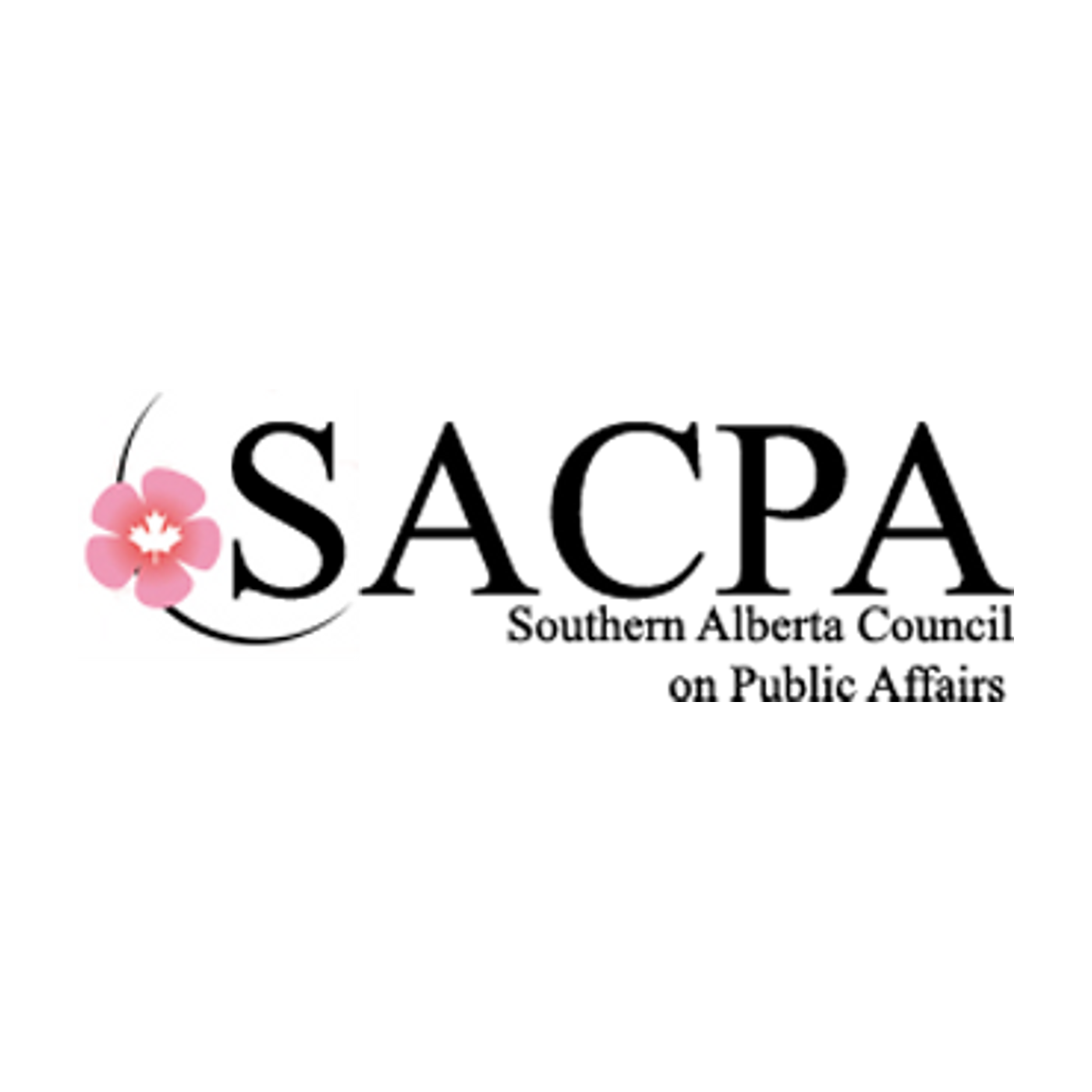
25.8K
Downloads
1378
Episodes
SACPA seeks to promote a sense of community and citizenship amongst the public. It is strictly non-partisan in its political outlook and encourages the expression of divergent viewpoints. SACPA does not take sides on the issues debated at its sessions. The opinions expressed by speakers are their own and are not necessarily shared by the Board of Directors.
Episodes
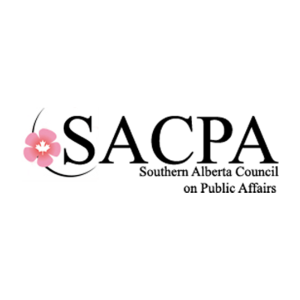
Wednesday Mar 24, 2021
Policing in Challenging Times
Wednesday Mar 24, 2021
Wednesday Mar 24, 2021
These are challenging times for the world, and law enforcement agencies are not exempt from the taxing circumstances or the growing expectations of the community, whether that’s from a global or local perspective. Under greater scrutiny than perhaps ever before, policing in 2021 presents numerous potential perils which must be safely navigated. In his presentation, ‘Policing in Challenging Times’, the speaker will discuss the many and varied challenges facing the Lethbridge Police Service, ranging from the opioid crisis and resulting spin-offs, to policing during a pandemic and dealing with budget constraints in the face of rising crime rates. The discussion will also include both internal and external means to tackle those challenges. Police Chief Shahin Mehdizadeh will open his presentation by outlining the journey which brought him to a leadership role with the Lethbridge Police Service (LPS). Speaker: Shahin Mehdizadeh, Lethbridge Police Chief Sworn in as the Lethbridge Chief of Police in August of 2020, he began his policing career with the RCMP in 1989. He is an accomplished police executive with more than 30 years of national and international policing experience covering such disciplines as general patrol duties, major crimes, drug and organized crime, covert operations and national security. A Member of the Order of Merit of the Police Forces (M.O.M.), Chief Mehdizadeh has a proven track record of success in leading initiatives to counter and prevent crime, promote public safety and build strong relationships with communities. Date and time: Thursday March 25, 2021 at 10:00 am MST YouTube Live link: https://youtu.be/yNrVAibLcBA In order to ask questions of our speaker in the chat feature of YouTube, you must have a YouTube account and be signed in. Please do so well ahead of the scheduled start time, so you’ll be ready. Go to the YouTube Live link provided in this session flyer and on the top right of your browser click the “sign in” button. If you have Google or Gmail accounts, they can be used to sign in. If you don’t, click “Create Account” and follow along. Once you are signed in, you can return to the live stream and use the chat feature to ask your questions of the speaker. Remember you can only participate in the chat feature while we are livestreaming. Link to SACPA’s YouTube Channel: https://www.youtube.com/c/SouthernAlbertaCouncilonPublicAffairs
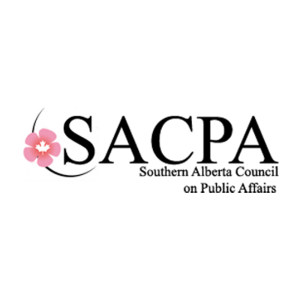
Wednesday Mar 17, 2021
Private health care for Alberta: efficiency, effectiveness and equity?
Wednesday Mar 17, 2021
Wednesday Mar 17, 2021
The question of the role of the private sector in providing health care in Canada is both complex and politically charged. In this presentation, Dr. McCabe will seek to separate out issues of fact from issues of value and explore the importance of each in assessing the impact of different potential models of private health care in the Canadian context. Speaker:Dr. Christopher McCabe CEO & Executive Director of the Institute of Health Economics (IHE). Dr. McCabe brings more than 25 years of experience as a health economist to his role with the organization. He trained and worked for 20 years in the UK before emigrating to Canada. During this time, he held Full Professorships at the Universities of Sheffield, Warwick and Leeds. He was more recently a Professor of Health Economics at the University of Alberta, where he was appointed Capital Health Endowed Research Chair at the University of Alberta. In this position he led two Genome Canada funded research groups focused on the evaluation, adoption and implementation of Precision Medicine technologies. He also served on the Canadian Agency for Drugs and Technologies in Health Care (CADTH) Health Economics Working Group, which authored the 4th Edition of the CADTH Guidelines for the Economic Evaluation of Health Technologies in 2017. He was lead author of the 2019 addendum to the CADTH Guidelines focused on co-dependent therapies. More recently Dr. McCabe advised the Patented Medicines Price Review Board on the technical issues related to the revision of their regulations for setting the price of new drugs in Canada. He is currently Chair of the Royal Society of Canada COVID Task Force Working Group on the Economy. Date and time: Thursday March 18, 2021 – 10:00 AM (MST) YouTube Live link: https://youtu.be/Pg4DT3xH1F8 In order to ask questions of our speaker in the chat feature of YouTube, you must have a YouTube account and be signed in. Please do so well ahead of the scheduled start time, so you’ll be ready. Go the YouTube Live link provided in this session flyer and on the top right of your browser click the “sign in” button. If you have Google or Gmail accounts, they can be used to sign in. If you don’t, click “Create Account” and follow along. Once you are signed in, you can return to the live stream and use the chat feature to ask your questions of the speaker. Remember you can only participate in the chat feature while we are livestreaming. Link to SACPA’s YouTube Channel: https://www.youtube.com/channel/UCFUQ5mUHv1gfmMFVr8d9dNA
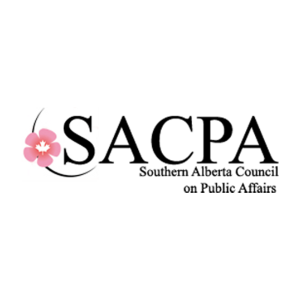
Wednesday Mar 10, 2021
Why we need insects and spiders, which of them are declining, and which moving in.
Wednesday Mar 10, 2021
Wednesday Mar 10, 2021
Insects and spiders matter to us because of their enormous contributions to ecosystems, including in food webs, for pollination, enjoyment, and pest control. Some set back agriculture and forestry, and can harm health of humans, livestock, and wildlife. Some species seem to be in decline, or are being replaced. We will see examples of the lives of insects and spiders in our area, including some that are worthy of conservation. Citizen science participation and personal interest expressed by the public and students is an important part. Speaker: Dan Johnson (BSc, Sask; MSc, PhD, UBC, Institute of Animal Resource Ecology & Department of Plant Science) Bio: Dan promotes public understanding of science, especially about ecosystems and biodiversity. He conducts research on weather and life, sustainable crop protection, entomology, and environment. As a Professor at the University of Lethbridge, he has taught environmental science, including in the First Nations Transition Program, data analysis, experimental design, biogeography, and insect ecology. He organized and chaired the world conference on grasshoppers and locusts, in Canmore. He led the Canadian Zebra Chip and Potato Psyllid Monitoring and Research Network, 2013-2018. He served as a Canada Research Chair, and on the Alberta Environmental Appeals Board. He received the C. Gordon Hewitt medal from the Entomological Society of Canada, and served as ESC President in 2000. He is VP of the Entomol. Soc. Alberta. Date and time: March 11, 2021. 10:00 a.m. MST YouTube Live link: https://youtu.be/z0SeZdFtbJU YouTube Live link: In order to ask questions of our speaker in the chat feature of YouTube, you must have a YouTube account and be signed in. Please do so well ahead of the scheduled start time, so you’ll be ready. Go the YouTube Live link provided in this session flyer and on the top right of your browser click the “sign in” button. If you have Google or Gmail accounts, they can be used to sign in. If you don’t, click “Create Account” and follow along. Once you are signed in, you can return to the live stream and use the chat feature to ask your questions of the speaker. Remember you can only participate in the chat feature while we are livestreaming. For further info visit the SACPA website: http://www.sacpa.ca
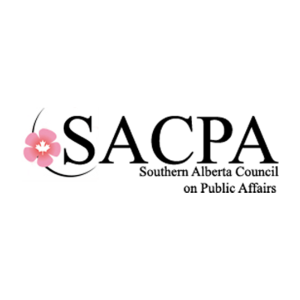
Wednesday Mar 03, 2021
How are Post-Secondary Students Coping with the COVID-19 Pandemic?
Wednesday Mar 03, 2021
Wednesday Mar 03, 2021
The COVID-19 pandemic has caused many challenges for post-secondary students. Despite the flexibility, support and hard work of professors to create an engaging online learning experience, the change to at-home learning has been very difficult for some students. Isolation and uncertainty have affected the mental health of numerous others. Many students lost jobs, co-op, and internship experiences in 2020, affecting their financial sustainability, career development, and progress to complete their academic programs. In short, the very important public health requirements required to protect the health and safety of the University community have limited or drastically changed many aspects of the student experience that are so fundamental to students’ growth, development, and sense of connection. Whether it’s making new friends on campus, participating in research, conferences, club activities, or being involved in sport, the well-known pre-pandemic transformative experience has given way to something less fulfilling for many students. Most are eager to return to the robust and engaging student experience that is familiar to them – the one they have come to expect. The speaker will account for how students have been coping at the University of Lethbridge, describe what measures the university is taking to mitigate the effects on students during this pandemic, and will discuss the plans that are being developed regarding the future of the student experience in fall 2021. Speaker: Kathleen Massey Kathleen Massey is an Associate Vice-President (Students) at University of Lethbridge where she oversees the Registrar’s Office, Enrolment Services and Student Services. Massey holds a Bachelor of Political Science from York University and a Master of Leadership from Royal Roads University. Focused on advancing student achievement and creating a framework that supports student success, Massey was recognized in 2014 with an Outstanding Achievement Award from the Association of Registrars of the Universities and Colleges of Canada. She also won a 2003 Queen’s Golden Jubilee Medal for Outstanding Leadership in Education. Date and time: Thursday, March 4, 2021 at 10 am MST YouTube Live link: https://youtu.be/o29DGchL8Gk In order to ask questions of our speaker in the chat feature of YouTube, you must have a YouTube account and be signed in. Please do so well ahead of the scheduled start time, so you’ll be ready. Go the YouTube Live link provided in this session flyer and on the top right of your browser click the “sign in” button. If you have Google or Gmail accounts, they can be used to sign in. If you don’t, click “Create Account” and follow along. Once you are signed in, you can return to the live stream and use the chat feature to ask your questions of the speaker. Remember you can only participate in the chat feature while we are livestreaming. Link to SACPA’s YouTube Channel: https://www.youtube.com/channel/UCFUQ5mUHv1gfmMFVr8d9dNA
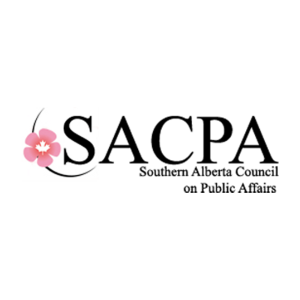
Wednesday Feb 24, 2021
Sustainable Farming: What role can Biogas Production Play in Reducing CO2 Emissions?
Wednesday Feb 24, 2021
Wednesday Feb 24, 2021
Biogas production is essentially an industrial stomach which converts organic waste into usable fuel. Biogas is 60% methane and is used to fuel powerful engines that drives generators producing 24/7 100% renewable electricity. This electricity can be used by the producer or sold into the Alberta Electricity Grid through AESO. Renewable Natural Gas (RNG) is arguably the green gas of tomorrow and is the most efficient means of converting organics into renewable energy. Once biogas is upgraded to RNG, it is interchangeable with Natural Gas and can be injected into local gas grids and used for generating electricity or vehicle fueling. Biogas plants can process a wide array of organic waste materials from the food industry and agricultural residues including deadstock and manure. In the food industry business sector, anaerobic digestion offers significant cost advantages over traditional disposal methods, both to waste management companies and producers alike. The speaker will explain the lengthy regulatory process to build a biogas facility. As well, he will argue that while such projects are not particularly viable at the moment, biogas facilities can be an important piece of the puzzle to address climate change and increase the sustainability of farming. Speaker: Chris Perry Chris Perry is the co-founder and President of CKP Farms Ltd. and Grow the Energy Circle Ltd. (GrowTEC). He is a farm boy at heart with a passion for renewable energy. He would like to participate in expanding Alberta’s agriculture industry to its potential in the next decade or two. Chris manages a 4,000 irrigated acre farm together with brother Harold in southern Alberta. They grow potatoes for Frito Lay and McCain Foods Canada and green peas for Bonduelle. GrowTEC commissioned a 633 KW generating capacity anaerobic digester waste to energy facility in November 2014 and they produce triple their entire farms electricity use from organic waste. Chris has the goal of incorporating the ICT technology of today more thoroughly into the agriculture sector. The ideas of yesterday around precision agriculture, integrated with the data analysis, management and storage cyber-infrastructure today have the ability to be game changer in yield per acre increases. Variable rate irrigation, full visual spectral sensors for real time moisture, nutrient and carbon management are available with more potential and affordability than ever before. Date and time: Thursday, February 25, 2021 at 10 am MST YouTube Live link: https://youtu.be/IJCUudOu1nw In order to ask questions of our speaker in the chat feature of YouTube, you must have a YouTube account and be signed in. Please do so well ahead of the scheduled start time, so you’ll be ready. Go the YouTube Live link provided in this session flyer and on the top right of your browser click the “sign in” button. If you have Google or Gmail accounts, they can be used to sign in. If you don’t, click “Create Account” and follow along. Once you are signed in, you can return to the live stream and use the chat feature to ask your questions of the speaker. Remember you can only participate in the chat feature while we are livestreaming. SACPA’s YouTube Channel: https://www.youtube.com/c/SouthernAlbertaCouncilonPublicAffairs
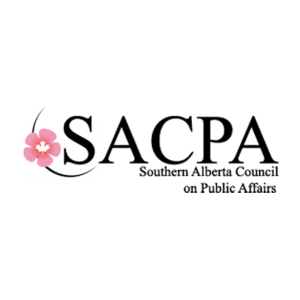
Wednesday Feb 17, 2021
Alberta’s Future: A Virtual Conversation with Rachel Notley
Wednesday Feb 17, 2021
Wednesday Feb 17, 2021
Alberta is in the midst of a generational economic shift as we face the impacts of the COVID-19 pandemic. As we look ahead to the post-pandemic recovery, it is time for Albertans to come together to overcome the economic challenges we face as a province. Join Rachel Notley for a conversation about how we can create a new economic strategy and build a more resilient and diversified economy in Alberta. Speaker: Rachel Notley, MLA and Leader of the Official Opposition in Alberta Rachel Notley served as Alberta’s Premier from 2015-2019. She has represented the constituency of Edmonton-Strathcona since 2008. Rachel grew up in Fairview, Alberta, and is the daughter of former Alberta NDP leader Grant Notley and his wife Sandy. She holds a bachelor of arts in political science from the University of Alberta, and a law degree from Osgoode Hall Law School. Date and time: Thursday, February 18, 2021 at 10am MST YouTube Live link: https://youtu.be/ZjMLY-RHW-Y In order to ask questions of our speaker in the chat feature of YouTube, you must have a YouTube account and be signed in. Please do so well ahead of the scheduled start time, so you’ll be ready. Go the YouTube Live link provided in this session flyer and on the top right of your browser click the “sign in” button. If you have Google or Gmail accounts, they can be used to sign in. If you don’t, click “Create Account” and follow along. Once you are signed in, you can return to the live stream and use the chat feature to ask your questions of the speaker. Remember you can only participate in the chat feature while we are livestreaming. SACPA’s YouTube Channel: https://www.youtube.com/c/SouthernAlbertaCouncilonPublicAffairs
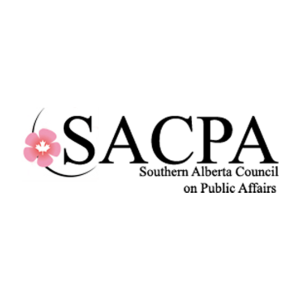
Wednesday Feb 10, 2021
Wednesday Feb 10, 2021
There is significant interest in establishing metallurgical coal mining operations throughout the eastern slopes of Alberta. The areas residing within the Oldman watershed are no exception. Currently, there are four companies exploring potential mining operations in the region. All of the currently proposed coal mines are open-pit “mountain top removal” mines and are located in the Crowsnest Pass area. Coal mining exploration is also happening along the Livingstone Range and in the Bighorn area west of Red Deer. On May 15, 2020, the Government of Alberta announced it was rescinding the long-standing provincial Coal Policy, which was implemented by the Peter Lougheed Government in 1976. Since then, Crown coal rights have been sold on land where coal mining was previously not considered, in order to protect the watershed and wildlife. Coal companies are currently building roads and drilling exploratory holes to better understand the value of the coal to their business. Of the four companies currently exploring the Oldman watershed, the Riversdale/Benga Grassy Mountain Coal Project is furthest along in the approval process. Benga’s Environmental Impact Assessment and Joint Review Panel public hearings are complete. The Oldman Watershed Council (OWC) participated in the public hearings last fall and has been sharing information publicly and with elected officials to support informed decision making. The speaker will detail what is currently happening in the Oldman watershed with regards to coal mines and what the long-term impacts of coal mining are likely to be. Speaker: Shannon Frank, Executive Director of the Oldman Watershed Council Prior to becoming the Executive Director of the Oldman Watershed Council in 2011, Shannon Frank completed her Environmental Science degree at University of Lethbridge. She previously worked for MULTISAR (Multiple Species at Risk) as the Extension Coordinator supporting agricultural producers with habitat restoration projects and leading youth education activities. Date and time: Thursday, February 11, 2021 at 10am MST YouTube Live link: https://youtu.be/eXBxya2-fwQ In order to ask questions of our speaker in the chat feature of YouTube, you must have a YouTube account and be signed in. Please do so well ahead of the scheduled start time, so you’ll be ready. Go the YouTube Live link provided in this session flyer and on the top right of your browser click the “sign in” button. If you have Google or Gmail accounts, they can be used to sign in. If you don’t, click “Create Account” and follow along. Once you are signed in, you can return to the live stream and use the chat feature to ask your questions of the speaker. Remember you can only participate in the chat feature while we are livestreaming. Link to SACPA’s YouTube Channel: https://www.youtube.com/channel/UCFUQ5mUHv1gfmMFVr8d9dNA
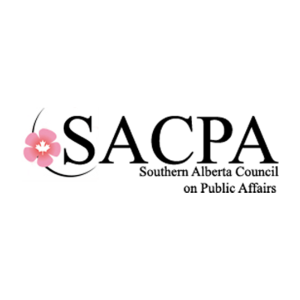
Wednesday Feb 03, 2021
Wednesday Feb 03, 2021
As the number of COVID-19 cases and deaths (currently near 100 million and over 2 million respectively) continues to rise around the globe, health-care systems are being put under extreme stress and the need for effective vaccines, with enough supplies for everyone, is crucial. The response must be global because this virus will keep circulating in countries without a vaccine, giving it the opportunity to mutate, completely change its structure and possibly come back as a new strain of virus. Sadly, mutations have already occurred, but the good news is, some very effective vaccines are currently being administered in many countries, Canada included. Several other vaccines are in the final stages of pre-clinical trials. The challenge remains however, how to make vaccines widely available throughout the world. Vaccine manufactures Moderna and Pfizer for example, uses “messenger” RNA (mRNA) as ingredients, but at this stage, the long-term effects of those vaccines, if any, aren’t known. As well, during the urgency of a global pandemic, researchers have not had the time to find out precisely how long immunity may last after someone has been vaccinated. The speaker will describe how vaccines work and argue that presently, there are no other viable options to tackle the COVID-19 pandemic. Speaker: Dr. Trushar Patel Dr. Patel's goal is to obtain detailed insights into how viral nucleic acids interact with host proteins by employing interdisciplinary approaches. Information on the specific sites of host proteins that communicate with viral nucleic acids will ultimately allow the development of therapeutics that prevent host-viral communication. These interactions are essential for the survival and replication of the virus - stopping the interactions is thus of benefit for treating viral infection. Patel's research program is timely given recent global incidences of viral outbreaks and, in many cases, the lack of available treatment and the failure of currently available drugs designed to target viral components. Date and time: Thursday, February 4, 2021 at 10 am MST YouTube Live link: https://youtu.be/GWNNdyKx9kU In order to ask questions of our speaker in the chat feature of YouTube, you must have a YouTube account and be signed in. Please do so well ahead of the scheduled start time, so you’ll be ready. Go the YouTube Live link provided in this session flyer and on the top right of your browser click the “sign in” button. If you have Google or Gmail accounts, they can be used to sign in. If you don’t, click “Create Account” and follow along. Once you are signed in, you can return to the live stream and use the chat feature to ask your questions of the speaker. Remember you can only participate in the chat feature while we are livestreaming. Link to SACPA’s YouTube Channel: https://www.youtube.com/channel/UCFUQ5mUHv1gfmMFVr8d9dNA
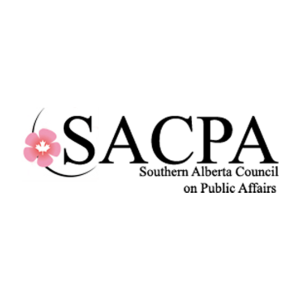
Wednesday Jan 27, 2021
Wednesday Jan 27, 2021
With the November 3, 2020 US election resulting in Joe Biden being elected President and the Democrats gaining control of both houses of Congress, what are the likely implications for Alberta’s Energy Sector? The new President and Administration has signaled we can expect changes to US Environmental policy and to the approval process of Keystone XL Pipeline, but what does that mean for energy rich Alberta? The speaker will analyze the questions and argue that a more collaborative approach will return on issues of mutual concern, continuing the strong Canada US relationship benefits that Alberta’s Energy sector rely on. Speaker: Gary G. Mar, Q.C. President and CEO. Canada West Foundation (CWF) Gary Mar was named President & CEO of CWF in April 2020. An accomplished & respected leader, Gary brings deep experience in government & business, & established expertise in CWF’s key policy areas in natural resources, trade & investment & human capital. Prior to joining the CWF, Gary served as President & CEO of the Petroleum Services Assoc of Canada (PSAC), the national trade association representing the service, supply & manufacturing sectors within the upstream petroleum industry. Gary has broad experience in government having served as a Member of the Legislative Assembly for Alberta from 1993-2007. As an elected official, Gary held several Cabinet portfolios: Community Development; Health and Wellness; Education; Environment; & International & Intergovernmental Relations. Gary then served as the Official Representative of Alberta at the Canadian Embassy in Washington D.C., from 2007 – 2011, & worked extensively with the Alberta energy sector on advocacy issues in Washington DC & many U.S. States. Gary next served as Alberta’s Representative in Asia from 2011 to 2015. He led the province’s strategic outreach efforts from his post in Hong Kong & worked with Alberta’s offices in Beijing, Shanghai, Tokyo, Seoul, & Taipei. Following his government service, Gary was an independent consultant working for both Chinese & Canadian companies seeking assistance with Trans Pacific trade & investment. In 2016, he co-founded Canadian Advantage Petroleum Corporation which has successfully purchased heavy oil in Alberta & sold it directly to refineries in China. Gary has been appointed as an Adjunct Professor at the University of Alberta School of Business in Marketing, Business Economics & Law beginning July 1, 2020. He is also an Adjunct Professor at the University of Calgary’s Haskayne Business School & is a public speaker at energy related conferences. Gary completed a Law degree at the University of Alberta & practiced criminal, civil, corporate, commercial and real estate law in Calgary prior to entering politics. Date and time: Thursday January 28, 2021 – 10 AM (MST) YouTube Live link: https://youtu.be/S6B_BJaiQV8 In order to ask questions of our speaker in the chat feature of YouTube, you must have a YouTube account and be signed in. Please do so well ahead of the scheduled start time, so you’ll be ready. Go the YouTube Live link provided in this session flyer and on the top right of your browser click the “sign in” button. If you have Google or Gmail accounts, they can be used to sign in. If you don’t, click “Create Account” and follow along. Once you are signed in, you can return to the live stream and use the chat feature to ask your questions of the speaker. Remember you can only participate in the chat feature while we are livestreaming. Link to SACPA’s YouTube Channel: https://www.youtube.com/channel/UCFUQ5mUHv1gfmMFVr8d9dNA For further info visit the SACPA website: http://www.sacpa.ca
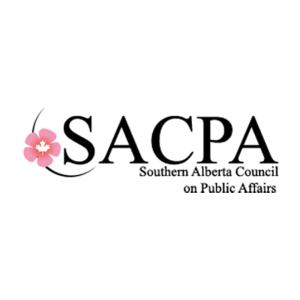
Wednesday Jan 20, 2021
Wednesday Jan 20, 2021
The speaker asserts that: “If ever there were a time for universities to assume a leadership role in providing the knowledge needed for socio-ecological change, this is surely that moment.” But what drives research and innovation in Alberta’s largest universities, and in what directions? What kinds of knowledge are our universities producing to help Albertans make a transition to a post-carbon economy that can provide income security and a good life for all? These are the questions that motivated the research that led to the June 2020 report, Knowledge for an Ecologically Sustainable Future? Innovation Policy and Alberta Universities, published by the Parkland Institute and the Corporate Mapping Project. Over five years, painstaking data collection from multiple sources allowed Adkin and her research assistants to reconstruct a picture of the funding flows to the Universities of Alberta and Calgary over a period of twenty years. Focusing on funding to the domains of energy and environmental research, located in multiple faculties, centers, and institutes, they categorized research projects in relation to their contributions to ecologically sustainable development. The talk will present some of the findings from this extensive research, leaving time for discussion about what this all means for Albertans’ future. Speaker: Dr. Laurie Adkin Laurie Adkin is a political economist and professor in the Department of Political Science at the University of Alberta. Her main areas of research and teaching are political ecology, the populist radical right in Europe, and Alberta politics. Since 2002, she has studied the formation of climate change policy in Alberta and Canada. She is the author of Politics of Sustainable Development: Citizens, Unions, and the Corporations (1998), and editor and co-author of Environmental Conflict and Democracy in Canada (2009), and First World Petro-Politics: The Political Ecology and Governance of Alberta (2016). Her recent work has focused on the political ecology of knowledge production in Alberta’s universities and on innovation policy and discourse as responses to the global climate. Date and time: Thursday January 21, 2021 – 10 AM (MST) YouTube Live link: https://youtu.be/FEcD0mwmSbM In order to ask questions of our speaker in the chat feature of YouTube, you must have a YouTube account and be signed in. Please do so well ahead of the scheduled start time, so you’ll be ready. Go the YouTube Live link provided in this session flyer and on the top right of your browser click the “sign in” button. If you have Google or Gmail accounts, they can be used to sign in. If you don’t, click “Create Account” and follow along. Once you are signed in, you can return to the live stream and use the chat feature to ask your questions of the speaker. Remember you can only participate in the chat feature while we are livestreaming. Link to SACPA’s YouTube Channel: https://www.youtube.com/channel/UCFUQ5mUHv1gfmMFVr8d9dNA
